Modern catalysis II
AMU Invited Lecture Series in MODERN CATALYSIS II is a series of lectures given by world-renown experts in catalysis, green chemistry, organometallic chemistry, and the synthesis of various compounds, advanced in structures and functions, whose research belongs to the actual fast-developing and very modern trends in chemical sciences. The proposed series in MODERN CATALYSIS II, constitutes a continuation of the previous series (financed by the IDUB program), which permitted to present excellent research in catalysis, carried out by outstanding scientists from high rank universities and institutes. The lecturers have been chosen according to their expertise in various aspects of catalysis, the experts in the subjects. The lectures will cover many hot topics in catalysis, e.g., application of frustrated Lewis pairs (FLPs), main group and transition element catalysts, or photocatalysis. The emphasis will be placed on the activation of various carbon-hydrogen and carbon- heteroatom bonds, asymmetric catalysis, as well as the synthesis of many useful compounds and building blocks in organic chemistry. Insights into reactions mechanisms, new catalytic processes, and their sustainability will also be presented within this series of lectures.
The chemistry at AMU is closely related to homogeneous and heterogeneous catalysis, as well as organometallic chemistry. There are several research groups working on catalytic processes, synthesis, and mechanical investigations of reactions. The proposed series of lectures in MODERN CATALYSIS 2 will be an inspiration for scientists at AMU to use catalytic processes in their projects, to discover the power of the catalysis in the case of reactions selectivity, productivity and sustainability and synthesis of complex molecules. The lectures will stimulate new ideas, build a strong network between researchers, and open horizons to topics concerning various aspects of catalysis. The lecturers guarantee the high quality of research, and their achievements can help scientists from AMU to develop new strategies for new projects and high-impact publications. Moreover, this series of lectures is addressed to young researchers, Ph.D. students and MSc students, who will have the opportunity to hear top lectures in catalysis. Having in mind that most of the designed new processes are based on catalytic reactions (homogeneous, heterogeneous, organocatalysts, etc), the proposed AMU series of invited lectures is MODERN CATALYSIS 2 is addressed to all chemists from different specializations.
The lectures will be given online using standard platforms (e.g., MS Teams or Zoom) but the project author will try to find additional funds for inviting some of the lecturers to AMU. Therefore, depending on the pandemic situation and the financial support, some of the lectures might be given in person. Eight lectures are planned, which will be organized in the winter and summer semesters of the academic year 2022/2023. Each lecture will be announced on the AMU website and on social media. In the Table, tentative titles of the lectures are presented; below, the brief presentation of invited speakers, their main achievements, selected papers, and short information about their research are described.
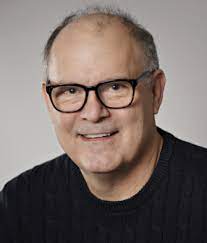 Prof. Dr. Douglas Stephan (University of Toronto, Canada) graduated with his BSc at McMaster University in Hamilton, Canada (1976) and completed his PhD at University of Western Ontario (UWO) (1980). He then held a NATO PDF at Harvard, before beginning his independent career at the University of Windsor (1982). He was promoted to Associate Professor (1985), full Professor (1992) and named a NSERC Industrial Research Chair (2001), University Professor (2002) and Canada Research Chair (2005). In 2008, he moved to the University of Toronto as a Professor and Canada Research Chair. In 2018, he was appointed University Professor. He was an Einstein Visiting Fellow at TU-Berlin from 2016-2019 and in 2020 established an additional satellite laboratory in China at Ningbo University as a Zhedong Scholar Chair Professor. He was an Associated Editor for Chem. Soc. Rev. for 6 years, the Chair of the editorial board and is now Chair of the editorial board of Chem. Comm. He was honored with many distinguished awards, e.g., F.A. Cotton Award in Synthetic Inorganic Chemistry (2022, American Chemical Society), Centenary Prize (2021, Royal Society of Chemistry, UK), Guggenheim Fellowship (2020, Simon Guggenheim Memorial Foundation), World’s Most Influential Scientific Minds (2015), Applied Catalysis Award (2014, Royal Society of Chemistry, UK). His research is focused on a wide range of inorganic main group and organometallic chemistry, especially Frustrated Lewis Pairs, developing new catalysts to new materials or new processes. Another area of scientific interest is the design and development of new catalyst and process technologies for use in commercial applications. He is an author of 535 peer- reviewed publications, several books, book chapters, and more than 90 patents. The H index is 88 (Web of Science) or 99 (Google Scholar). His research was cited for more than 32 000. He gave 360 invited lectures.
Prof. Dr. Douglas Stephan (University of Toronto, Canada) graduated with his BSc at McMaster University in Hamilton, Canada (1976) and completed his PhD at University of Western Ontario (UWO) (1980). He then held a NATO PDF at Harvard, before beginning his independent career at the University of Windsor (1982). He was promoted to Associate Professor (1985), full Professor (1992) and named a NSERC Industrial Research Chair (2001), University Professor (2002) and Canada Research Chair (2005). In 2008, he moved to the University of Toronto as a Professor and Canada Research Chair. In 2018, he was appointed University Professor. He was an Einstein Visiting Fellow at TU-Berlin from 2016-2019 and in 2020 established an additional satellite laboratory in China at Ningbo University as a Zhedong Scholar Chair Professor. He was an Associated Editor for Chem. Soc. Rev. for 6 years, the Chair of the editorial board and is now Chair of the editorial board of Chem. Comm. He was honored with many distinguished awards, e.g., F.A. Cotton Award in Synthetic Inorganic Chemistry (2022, American Chemical Society), Centenary Prize (2021, Royal Society of Chemistry, UK), Guggenheim Fellowship (2020, Simon Guggenheim Memorial Foundation), World’s Most Influential Scientific Minds (2015), Applied Catalysis Award (2014, Royal Society of Chemistry, UK). His research is focused on a wide range of inorganic main group and organometallic chemistry, especially Frustrated Lewis Pairs, developing new catalysts to new materials or new processes. Another area of scientific interest is the design and development of new catalyst and process technologies for use in commercial applications. He is an author of 535 peer- reviewed publications, several books, book chapters, and more than 90 patents. The H index is 88 (Web of Science) or 99 (Google Scholar). His research was cited for more than 32 000. He gave 360 invited lectures.
Selected papers:
- “Diverse Uses of the Reaction of Frustrated Lewis Pair (FLP) with Hydrogen” D.W. Stephan, J. Amer. Chem. Soc., 2021, 143, 20002-20014.
- “Synthesis of Urea Derivatives from CO2 and Silylamines“, M. Xu, A.R. Jupp, M. Ong, K. Burton, S. Chitnis, D.W. Stephen, Angew. Chem. Int. Ed. 2019, 58, 5707-5711.
- “One-Electron Transfer to Diphenyldiazomethane-Borane Adducts Prompts C-H Bond Activations”, L. L. Cao, J. Zhou, Z. -W. Qu, D.W. Stephan, Angew. Chem. Int. Ed., 2019, 58, 18487-18491.
- “Intramolecular Cycloaddition of Phosphaalkene to an Arene Ring”, L.L. Liu, J. Zhou, L.L. Cao, Y. Kim, D.W. Stephan, J. Am. Chem. Soc. 2019, 141, 8083-8087.
- “Dogma-Free Catalysis“, D.W. Stephen, Nature, 2018, 553, 160-161.
- “The Broadening Reach of Frustrated Lewis Pair Chemistry “, D.W. Stephen, Science, 2016, 354, aaf7229.
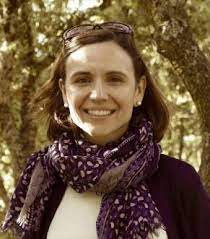 Prof. Dr. Mariola Tortosa (Universidad Autónoma de Madrid, Spain) obtained her B.S. in Chemistry from the Universidad Autónoma de Madrid (UAM) in 1999 receiving the 'end of degree' award. She then joined the group of Dr. R. Fernández de la Pradilla at the Instituto de Química Orgánica General (CSIC, Madrid, Spain) to carry out her graduate work on the development of new asymmetric methods using chiral sulfoxides (FPU-fellowship). In 2004, she received the Lilly Award for PhD students. In 2005, she moved to The Scripps Research Institute in Florida (USA) to work as a postdoctoral fellow with Prof. William Roush. Her research in Florida was directed toward the completion of the total synthesis of the antitumor agent Superstolide A using a transannular Diels–Alder strategy. In 2008, she returned to the Instituto de Química Orgánica General (Madrid, Spain) as a Juan de la Cierva fellow. In 2011, she started her independent research at the Universidad Autónoma de Madrid as an assistant professor. She received an ERC-Starting Grant to work on the project “Design and Applications of Unconventional Borylation Reactions” and more recently an ERC- Consolidator Grant to work on the project “Selective Pathways for Carbon-Nitrogen bond cleavage”. Her research interests include boron chemistry, asymmetric catalysis, and the synthesis of biologically active compounds. In 2014, she received the Young Investigator Award from the Royal Society of Chemistry of Spain and the Young Spanish Investigator Eli Lilly Award. In 2015, she received the Thieme Chemistry Journal Award for young professors and in 2021 the Barluenga Medal. She is the author of 50 publications (> 80% in Q1). Since 2014, she has been the leader of one of the research groups in the Department of Organic Chemistry at UAM (Selective Catalysis for Organic Synthesis). In December 2017, she was promoted to associate professor. She is regularly invited (over 50 invited lectures since 2013) to present her latest results to academia [e.g., ETH (Switzerland), University of Tokyo (Japan), ICIQ (Spain)], industry [e.g. GSK (Stevenage), Novartis (Basel), Eli Lilly (Madrid), Janssen (Toledo)] and at international conferences (e.g. EFMC (2019), ESOC (2017), ISOC (2017), EFMC (2016), AES (2016)]. Since November 2019, she serves as an Associate Editor of the ACS journal Organic Letters. H-index: 23 (Scopus), citation > 1900.
Prof. Dr. Mariola Tortosa (Universidad Autónoma de Madrid, Spain) obtained her B.S. in Chemistry from the Universidad Autónoma de Madrid (UAM) in 1999 receiving the 'end of degree' award. She then joined the group of Dr. R. Fernández de la Pradilla at the Instituto de Química Orgánica General (CSIC, Madrid, Spain) to carry out her graduate work on the development of new asymmetric methods using chiral sulfoxides (FPU-fellowship). In 2004, she received the Lilly Award for PhD students. In 2005, she moved to The Scripps Research Institute in Florida (USA) to work as a postdoctoral fellow with Prof. William Roush. Her research in Florida was directed toward the completion of the total synthesis of the antitumor agent Superstolide A using a transannular Diels–Alder strategy. In 2008, she returned to the Instituto de Química Orgánica General (Madrid, Spain) as a Juan de la Cierva fellow. In 2011, she started her independent research at the Universidad Autónoma de Madrid as an assistant professor. She received an ERC-Starting Grant to work on the project “Design and Applications of Unconventional Borylation Reactions” and more recently an ERC- Consolidator Grant to work on the project “Selective Pathways for Carbon-Nitrogen bond cleavage”. Her research interests include boron chemistry, asymmetric catalysis, and the synthesis of biologically active compounds. In 2014, she received the Young Investigator Award from the Royal Society of Chemistry of Spain and the Young Spanish Investigator Eli Lilly Award. In 2015, she received the Thieme Chemistry Journal Award for young professors and in 2021 the Barluenga Medal. She is the author of 50 publications (> 80% in Q1). Since 2014, she has been the leader of one of the research groups in the Department of Organic Chemistry at UAM (Selective Catalysis for Organic Synthesis). In December 2017, she was promoted to associate professor. She is regularly invited (over 50 invited lectures since 2013) to present her latest results to academia [e.g., ETH (Switzerland), University of Tokyo (Japan), ICIQ (Spain)], industry [e.g. GSK (Stevenage), Novartis (Basel), Eli Lilly (Madrid), Janssen (Toledo)] and at international conferences (e.g. EFMC (2019), ESOC (2017), ISOC (2017), EFMC (2016), AES (2016)]. Since November 2019, she serves as an Associate Editor of the ACS journal Organic Letters. H-index: 23 (Scopus), citation > 1900.
Selected papers:
- “Regioselective monoborylation of spirocyclobutenes” L. Novoa, L. Trulli, A. Parra, M. Tortosa, Org. Lett. 2021, 23, 7434.
- “Stereoselective diboration of spirocyclobutenes: a platform for the synthesis of spirocycles with orthogonal exit vectors” L. Novoa, L. Trulli, A. Parra, M. Tortosa, Ange. Chem. Int. Ed. 2020, 60, 11763-11768.
- “Harnessing the Elusive 1,4-Reduction of Vinyl Epoxides through Copper Catalysis” L. Amenós, L. Novoa, L. Trulli, A. Arroyo- Bondía, A. Parra, M. Tortosa, ACS Catal. 2019, 9, 6583-6587.
- “Strained boronates do the trick” A. Parra, M. Tortosa, Nature Chem. 2019, 2019, 11, 104-106.
- “Stereospecific Synthesis of α-Hydroxy-Cyclopropylboronates from Allylic Epoxides” L. Amenós, L. Trulli, L. L. Novoa, A. Parra, M. Tortosa, Angew. Chem. Int. Ed., 2019, 58, 3199-3192.
- “Regio- and Stereospecific Copper-Catalyzed Reactions of Propargylic Ammonium Salts and Aryl Grignard Reagents” M. Guisan-Ceinos, V. Martin-Heras M. Tortosa J. Am. Chem. Soc. 2017, 139, 8448-8451.
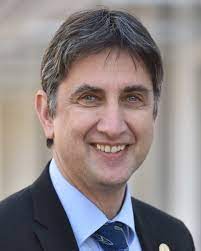 Prof. Dr. Stephen K. Hashmi (University of Heildelberg, Germany) studied chemistry at Ludwig-Maximilians-University Munich (Diploma thesis 1988) and got his PhD in 1991, both with Prof. G. Szeimies, both on highly strained organic compounds. In 1991-1993, he joined the group of Prof. B. M. Trost at Stanford University, California, USA, as a postdoctoral fellow and worked on enyne metathesis and related reactions. Prof. Dr. Hashmi got his habilitation in the group of Prof. Dr. J. Mulzer in 1993-1998 at the Institute of Organic Chemistry of Free University Berlin, Germany, Institute of Organic Chemistry of Johann Wolfgang Goethe-University Frankfurt, and then in the Institute of Organic Chemistry of University of Vienna, Austria. He was a visiting scientist at the University of Tasmania, Hobart, Australia, in 1999, and a temporary professorship for organic chemistry at the Department of Chemistry of Philipps-University Marburg in 1999/2000. From 2001-2007, he became professor of organic chemistry at the Institute of Organic Chemistry of Stuttgart University. Since 2004, he is Chair for Organic Chemistry at the Institute of Organic Chemistry of the Ruprecht-Karls-University Heidelberg. In 2010/2012, he was a dean of the Department of Chemistry and Earth Sciences of the University of Heidelberg and then vice-dean of the Faculty of Chemistry and Earth Sciences. Since 2013 until 2019, he has been vice-rector of the University of Heidelberg and director of the Institute of Organic Chemistry (2019-2021). In 2021 he was elected as a member of the Academia Europaea, a leading European Academy. He was awarded with many honors, e.g., Dr. Otto Röhm Memorial Fellowship (1998), Karl- Ziegler Memorial Fellowship (2001), Hector Research Prize 2010. He is a member of the international advisory board of Adv. Synth. Catal., Eur. Chem. J. (up to 2022), ChemCatChem, member of the editorial advisory board of Acc. Chem. Res. and a chair of the editorial board of ChemCatChem. He has published 471 publications registered in Web of Science with 34790 citations and H-index: 91. His research is focused on transition metal catalysis with an emphasis on gold-catalyzed C-C- and C- heteroatom couplings but also using other metals like Pd, Pt, Cu, Ag, Rh, Ir, and Ru, biioorganometallics, organometallic chemistry, focus on enantiomeric pure metallacycloalkanes (Ni, Pt, Pd), cyclometallations, and olefin insertion.
Prof. Dr. Stephen K. Hashmi (University of Heildelberg, Germany) studied chemistry at Ludwig-Maximilians-University Munich (Diploma thesis 1988) and got his PhD in 1991, both with Prof. G. Szeimies, both on highly strained organic compounds. In 1991-1993, he joined the group of Prof. B. M. Trost at Stanford University, California, USA, as a postdoctoral fellow and worked on enyne metathesis and related reactions. Prof. Dr. Hashmi got his habilitation in the group of Prof. Dr. J. Mulzer in 1993-1998 at the Institute of Organic Chemistry of Free University Berlin, Germany, Institute of Organic Chemistry of Johann Wolfgang Goethe-University Frankfurt, and then in the Institute of Organic Chemistry of University of Vienna, Austria. He was a visiting scientist at the University of Tasmania, Hobart, Australia, in 1999, and a temporary professorship for organic chemistry at the Department of Chemistry of Philipps-University Marburg in 1999/2000. From 2001-2007, he became professor of organic chemistry at the Institute of Organic Chemistry of Stuttgart University. Since 2004, he is Chair for Organic Chemistry at the Institute of Organic Chemistry of the Ruprecht-Karls-University Heidelberg. In 2010/2012, he was a dean of the Department of Chemistry and Earth Sciences of the University of Heidelberg and then vice-dean of the Faculty of Chemistry and Earth Sciences. Since 2013 until 2019, he has been vice-rector of the University of Heidelberg and director of the Institute of Organic Chemistry (2019-2021). In 2021 he was elected as a member of the Academia Europaea, a leading European Academy. He was awarded with many honors, e.g., Dr. Otto Röhm Memorial Fellowship (1998), Karl- Ziegler Memorial Fellowship (2001), Hector Research Prize 2010. He is a member of the international advisory board of Adv. Synth. Catal., Eur. Chem. J. (up to 2022), ChemCatChem, member of the editorial advisory board of Acc. Chem. Res. and a chair of the editorial board of ChemCatChem. He has published 471 publications registered in Web of Science with 34790 citations and H-index: 91. His research is focused on transition metal catalysis with an emphasis on gold-catalyzed C-C- and C- heteroatom couplings but also using other metals like Pd, Pt, Cu, Ag, Rh, Ir, and Ru, biioorganometallics, organometallic chemistry, focus on enantiomeric pure metallacycloalkanes (Ni, Pt, Pd), cyclometallations, and olefin insertion.
Selected papers:
- “Modular Two-Step Access to pi-Extended Naphthyridine Systems - Potent Building Blocks for Organic Electronics”, F. Stuck, M. C. Dietl, M. Meißner, F. Sebastian, M. Rudolph, F. Rominger, P. Krämer, A. S. K. Hashmi, Angew. Chem. Int. Ed., 2022, 61, e202114277.
- “Au-Ag Bimetallic Catalysis: 3- Alkynyl Benzofurans from Phenols via Tandem C-H Alkynylation/Oxy-Alkynylation” L. Hu, M. C. Dietl, C. Han, M. Rudolph, F. Rominger, A. S. K. Hashmi, Angew. Chem. Int. Ed. 2021, 60, 10637-10642.
- “Gold-Catalyzed Highly Selective Photoredox C(sp2)-H Difluoroalkylation and Perfluoroalkylation of Hydrazones” J. Xie, T. Zhang, F. Chen, N. Mehrkens, F. Rominger, M. Rudolph, A. S. K. Hashmi, Angew. Chem. Int. Ed. 2016, 55, 2934-2938.
- “Gold-Catalyzed C-H Annulation of Anthranils with Alkynes: A Facile, Flexible and Atom-Economical Synthesis of Unprotected 7-Acyl Indoles” H. Jin, L. Huang, J. Xie, M. Rudolph, F. Rominger, A. S. K. Hashmi, Angew. Chem. Int. Ed. 2016, 55, 794-797.
- “Gold Catalysis: Isolation of the First Vinylgold Complexes Derived from Alkynes”, A. S. K. Hashmi, A. Schuster, F. Rominger, Angew. Chem. Int. Ed. 2009, 48, 8247-8249.
- “Gold Catalysis: The Benefits of N- and N,O-Ligands”, A. S. K. Hashmi, J. P. Weyrauch, M. Rudolph, E. Kurpejovic, Angew. Chem. Int. Ed. 2004, 43, 6545-6547
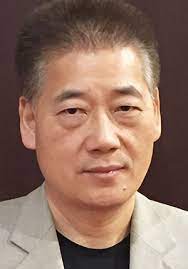 Prof. Dr. Chao-Jun Li (McGill University, Montreal, Canada) received his Ph.D. at McGill University in Montreal in Canada (1992) with T. H. Chan and D. N. Harpp and was a NSERC Postdoctoral Fellow at Stanford University (1992-94) in prof B. Trost group. He was an Assistant (1994), Associate (1998) and Full Professor (2000) at Tulane University, New Orleans, USA. Since 2003, he has been a Canada Research Chair (Tier I) in Green Chemistry and a professor of chemistry at McGill Universty, since 2009, he has been an E. B. Eddy Chair at McGill University. He served as the founding Co-Chair of the Canadian Green Chemistry and Engineering Network (2008-2016), the Director of CFI Infrastructure for Green Chemistry and Green Chemicals, the Director of NSERC CREATE (Center) for Green Chemistry, and the Co-Director of the FQRNT Center for Green Chemistry and Catalysis. He has been the Associate Editor for Green Chem. (RSC) (2005-2019) and since 2020 he has been an associate editor of Chem. Commun. He belongs to the editorial advisory board of ACS Catal., Chem. Soc. Rev., Chem. Sci., Adv. Sustain. Sys. and many more. He received numerous prestigious awards/honors worldwide: US Presidential Green Chemistry Challenge Award (2001), the Canadian Green Chemistry and Engineering Award (2010), and the Killam Research Fellow (2018), Humboldt Research Award (2020). He was elected as a Fellow of the Royal Society of Chemistry (UK, 2007), the Royal Society of Canada (Academy of Sciences) (2012), the AAAS (2012), the CIC (2013), the ACS (2015), and the TWAS (2016). He has published >500 peer- reviewed articles, 8 books, 12 patents and has given 475 plenary/keynote/invited lectures. His research focuses on developing green chemistry for synthesis based on fundamentally new chemistry that will defy conventional reactivities and possess high 'atom efficiency'. His research has been cited widely in the literature (> 51 000 times, H-index: 109).
Prof. Dr. Chao-Jun Li (McGill University, Montreal, Canada) received his Ph.D. at McGill University in Montreal in Canada (1992) with T. H. Chan and D. N. Harpp and was a NSERC Postdoctoral Fellow at Stanford University (1992-94) in prof B. Trost group. He was an Assistant (1994), Associate (1998) and Full Professor (2000) at Tulane University, New Orleans, USA. Since 2003, he has been a Canada Research Chair (Tier I) in Green Chemistry and a professor of chemistry at McGill Universty, since 2009, he has been an E. B. Eddy Chair at McGill University. He served as the founding Co-Chair of the Canadian Green Chemistry and Engineering Network (2008-2016), the Director of CFI Infrastructure for Green Chemistry and Green Chemicals, the Director of NSERC CREATE (Center) for Green Chemistry, and the Co-Director of the FQRNT Center for Green Chemistry and Catalysis. He has been the Associate Editor for Green Chem. (RSC) (2005-2019) and since 2020 he has been an associate editor of Chem. Commun. He belongs to the editorial advisory board of ACS Catal., Chem. Soc. Rev., Chem. Sci., Adv. Sustain. Sys. and many more. He received numerous prestigious awards/honors worldwide: US Presidential Green Chemistry Challenge Award (2001), the Canadian Green Chemistry and Engineering Award (2010), and the Killam Research Fellow (2018), Humboldt Research Award (2020). He was elected as a Fellow of the Royal Society of Chemistry (UK, 2007), the Royal Society of Canada (Academy of Sciences) (2012), the AAAS (2012), the CIC (2013), the ACS (2015), and the TWAS (2016). He has published >500 peer- reviewed articles, 8 books, 12 patents and has given 475 plenary/keynote/invited lectures. His research focuses on developing green chemistry for synthesis based on fundamentally new chemistry that will defy conventional reactivities and possess high 'atom efficiency'. His research has been cited widely in the literature (> 51 000 times, H-index: 109).
Selected papers:
- “Umpolung carbonyls enable direct allylation and olefination of carbohydrates” J. Kan, Z. Chen, Z. Qiu, L. Lv, C.-C. Li, C.-J. Li, Sci. Adv. 2022, 8. DOI: 10.1126/sciadv.abm6840
- “Palladium-catalyzed defluorinative alkylation of gem–difluorocyclopropanes: switching regioselectivity via simple hydrazones” L. Lv, C.-J. Li, Angew. Chem. Int. Ed. 2021, 60, 13098-13104.
- “Development of a quinolinium/cobaloxime dual photocatalytic system for oxidative C–C cross-couplings via H2 release” J. Li, C.-Y. Huang, J.-T. Han, C.-J, Li, ACS Catal. 2021, 11, 14148-14158.
- “Metal-Free Direct Deoxygenative Borylation of Aldehydes and Ketones” J. Li, H. Wang, Z. Qiu, C.-Y. Huang, C.-J. Li, J. Am. Chem. Soc. 2020, 142, 13011-13020.
- “Empowering alcohols as carbonyl surrogates for Grignard-type reactions” C.-C. Li, H. Wang, M.M. Sim, Z. Qiu, Z.-P. Chen, R.Z. Khaliullin, C.-J. Li, Nat. Commun, 2020, 11, 6022.
- “Palladium-Catalyzed Formal Hydroalkylation of Aryl-Substituted Alkynes with Hydrazones”. L. Yu, L. Lv, Z. Qiu, Z. Chen, Z. Tan, Y.-F. Liang, C.-J. Li, Angew. Chem. Int. Ed. 2020, 59, 14009-14013
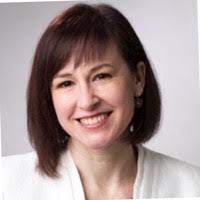 Prof. Dr. Belen Martin Matute (Stockholm University, Sweden) obtained her BSc in Organic Chemistry at the Universidad Autónoma de Madrid in 1998. She then joined the group of Prof. A. M. Echavarren, where she received her doctoral degree with sobresaliente cum laude in 2002 working on transition-metal- catalyzed reactions: intramolecular arylations and cyclisations of furans with alkynes. In 2003, she joined the group of Prof. J.-E. Bäckvall at Stockholm University for her postdoctoral studies where she worked on the dynamic kinetic resolution of sec-alcohols combining ruthenium and enzyme catalysts. She spent two more years in the group of Prof. J. C. Carretero in Madrid working on asymmetric catalysis. In October 2007, she returned to Stockholm University as Assistant Professor, where she became Associate Professor in 2012, and Full Professor in 2014.
Prof. Dr. Belen Martin Matute (Stockholm University, Sweden) obtained her BSc in Organic Chemistry at the Universidad Autónoma de Madrid in 1998. She then joined the group of Prof. A. M. Echavarren, where she received her doctoral degree with sobresaliente cum laude in 2002 working on transition-metal- catalyzed reactions: intramolecular arylations and cyclisations of furans with alkynes. In 2003, she joined the group of Prof. J.-E. Bäckvall at Stockholm University for her postdoctoral studies where she worked on the dynamic kinetic resolution of sec-alcohols combining ruthenium and enzyme catalysts. She spent two more years in the group of Prof. J. C. Carretero in Madrid working on asymmetric catalysis. In October 2007, she returned to Stockholm University as Assistant Professor, where she became Associate Professor in 2012, and Full Professor in 2014.
Belén Martín-Matute leads activities on the development of new catalytic processes to produce carbon- carbon and carbon-heteroatom bonds. This includes the conversion of water, carbon dioxide, and other renewable resources into chemical products without having to deal with hazardous intermediates. She received the Young Investigator Award from the Spanish Royal Society of Chemistry / Sigma Aldrich in 2007, the Lindbomska Award from the Swedish Academy of Sciences in 2013, and the Göran Gustafsson (GG) Award by the GG Foundation. She currently serves as an advisory board member for ACS Sustain. Chem. Eng. and Chem. Eur. J. Since 2021, she is an associate editor for Org. Lett. Her papers were cited > 5000, H-index: 43.
Selected papers:
- “Sustainable Chemistry and Engineering in Pharma” B. Martín-Matute, A.R. Meier, T.-X. Métro, S.G. Koening, H.F. Sneddon, P. Sudarsanam, P. Watts, ACS Sustain. Chem. Eng. 2021, 9, 13395-13398.
- “Ir(III)-Catalyzed Selective ortho-Monoiodination of Benzoic Acids with Unbiased C-H Bonds” E. Weis, M.J. Johansson, B. Martín-Matute, Chem. Eur. J. 2020, 26, 10185-10190.
- “An Umpolung Strategy to React Catalytic Enols with Nucleophiles” A. Sanz-Marco, S. Martinez-Erro, M. Pauze, E. Gomez- Bengoa, B. Martín-Matute, Nature Commun. 2019, 10, 524450.
- “Base-Catalyzed [1,n]-Proton Shifts in Conjugated Polyenyl Alcohols and Ethers” N. Molleti, S. Martinez-Erro, A. Carretero A. Cerdan, A. Sanz-Marco, E. Gomez-Bengoa, B. Martín-Matute, ACS Catal., 2019, 9, 9134-9139.
- “Probing the Evolution of Palladium Species in Pd@MOF Catalysts during the Heck Coupling Reaction: An Operando X-ray Absorption Spectroscopy Study” N. Yuan, V. Pascanu, Z. Huang, A. Valiente, N. Heidenreich, S. Leubner, A.K. Inge, J. Gaar, N. Stock, I. Persson, B. Martín-Matute, X. Zou, J. Am. Chem. Soc. 2018, 140, 8206–8217.
- "Base- and Additive-Free Ir-Catalyzed ortho-Iodination of Benzoic Acids: Scope and Mechanistic Investigations” E. Erbing, A. Sanz-Marco, A. Vázquez-Romero, J. Malmberg, M. Johansson, E. Gómez-Bengoa, B. Martín-Matute, ACS Catal., 2018, 8, 920-925.
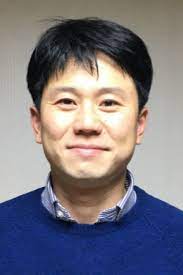 Dr. Sehoon Park (Guangdong-Technion Israel Institute of Technology (GTIIT), China) obtained his BSc (2002) and MSc (2004) in biomaterials chemistry at Chung-Ang University, Korea and received his Ph.D. in organometallic chemistry from Tokyo Institute of Technology in 2008 under the co-supervision of Prof. Kohtaro Osakada and Prof. Daisuke Takeuchi. After postdoctoral research at the University of North Carolina at Chapel Hill in USA with Prof. Maurice Brookhart (2009-2012), at the beginning of 2013 he joined the Chang research group at the Institute for Basic Science (Korea) as a research fellow and recently was promoted to a tenure-track research fellow (2017). He was also an adjunct professor at Korea University of Science and Technology (2016) until he became an assistant professor of chemistry at GTIIT in spring 2019 and a head of EHS. Sehoon Park obtained several awards, e.g., Guangdong Natural Science Foundation (2021), Li Ka Shing Foundation (2020), Excellent Research Award (Institute for Basic Science, 2014). His research is focused on C-H functionalization of hydrocarbons, asymmetric catalysis, metal-free organocatalytic reduction, single-site olefin polymerization, and biomass conversion. His H-index is 23.
Dr. Sehoon Park (Guangdong-Technion Israel Institute of Technology (GTIIT), China) obtained his BSc (2002) and MSc (2004) in biomaterials chemistry at Chung-Ang University, Korea and received his Ph.D. in organometallic chemistry from Tokyo Institute of Technology in 2008 under the co-supervision of Prof. Kohtaro Osakada and Prof. Daisuke Takeuchi. After postdoctoral research at the University of North Carolina at Chapel Hill in USA with Prof. Maurice Brookhart (2009-2012), at the beginning of 2013 he joined the Chang research group at the Institute for Basic Science (Korea) as a research fellow and recently was promoted to a tenure-track research fellow (2017). He was also an adjunct professor at Korea University of Science and Technology (2016) until he became an assistant professor of chemistry at GTIIT in spring 2019 and a head of EHS. Sehoon Park obtained several awards, e.g., Guangdong Natural Science Foundation (2021), Li Ka Shing Foundation (2020), Excellent Research Award (Institute for Basic Science, 2014). His research is focused on C-H functionalization of hydrocarbons, asymmetric catalysis, metal-free organocatalytic reduction, single-site olefin polymerization, and biomass conversion. His H-index is 23.
Selected papers:
- “Double Hydroboration of Quinolines via Borane Catalysis: Diastereoselective One-Pot Synthesis of 3- Hydroxytetrahydroquinolines” E. Kim, H. J. Jeon, S. Park, S. Chang, Adv. Synth. Catal. 2020, 362, 308-313.
- “Sequential C-H Borylation and N-Demethylation of 1,1’-Biphenylamines: An Alternative Route to Polycyclic BN Heteroarenes” J. Zhang, H. Jung, D.-W. Kim, S. Park, S. Chang, Angew. Chem. Int. Ed. 2019, 58, 7361-7365.
- “Catalytic Access to Bridged Sila-N-Heterocycles from Piperidines via Cascade sp3 and sp2 C-Si Bond Formation” C J. Zhang, S. Park, S. Chang, J. Am. Chem. Soc. 2018, 140, 13209-13213.
- “Piers’ Borane-Mediated Hydrosilylation of Epoxides and Cyclic Ethers” J. Zhang, S. Park, S. Chang, Chem. Commun. 2018, 54, 7243-7246.
- “Reductive Carbocyclization of Homoallylic Alcohols to syn-Cyclobutanes via Boron-Catalyzed Dual Ring-Closing Pathway” C.K. Hazra, J. Jeong, H. Kim, M.-H. Baik, S. Park, S. Chang, Angew. Chem. Int. Ed. 2018, 57, 2692-2696.
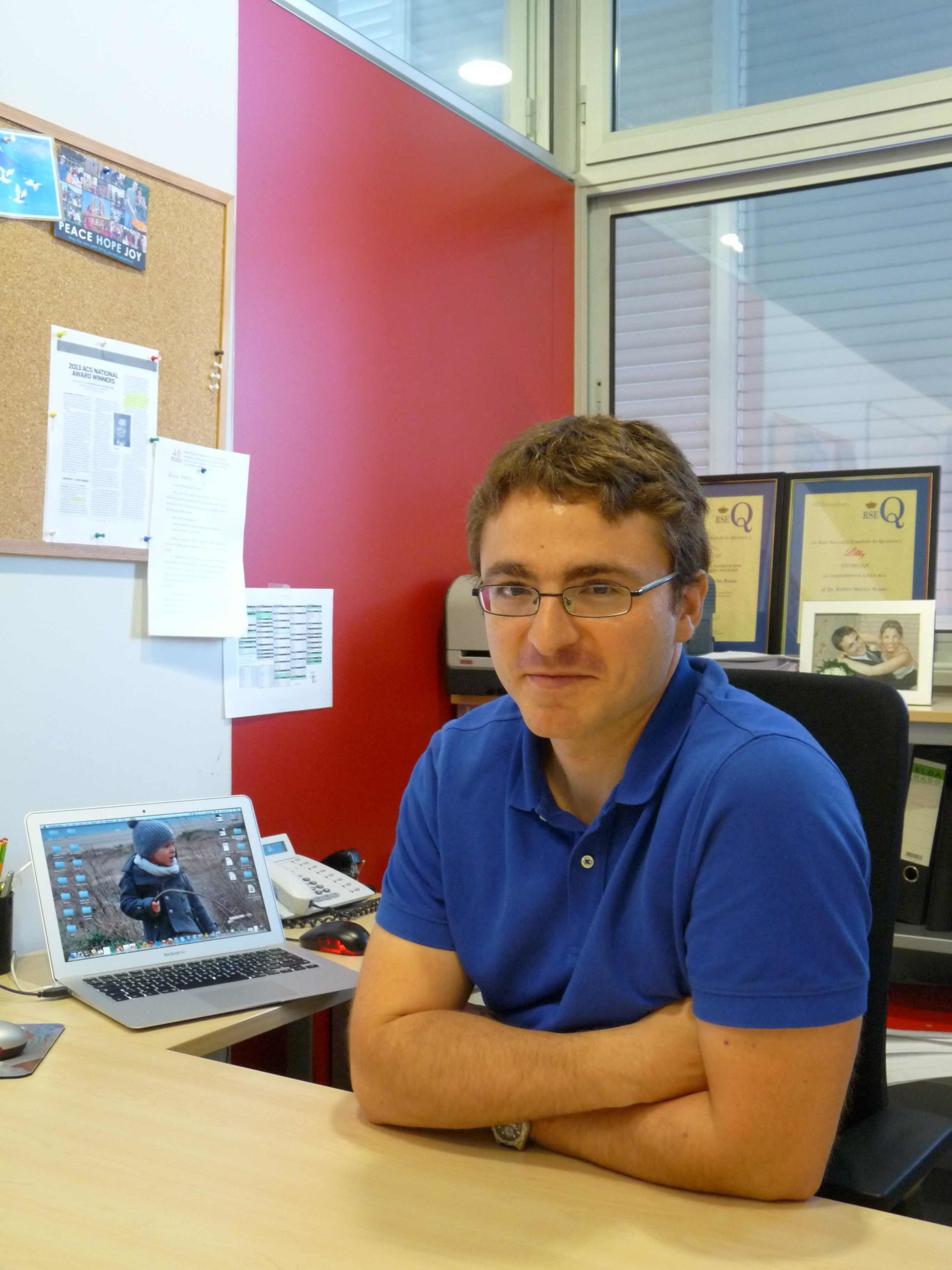 Prof. Dr. Ruben Martin (Institute of Chemical Research of Catalonia (ICIQ), Spain) received his Ph.D. in 2003 at the Universitat de Barcelona with Prof. Antoni Riera, working on the total synthesis of glycosidases inhibitors. In January 2004 he moved to the Max-Planck-Institut für Kohlenforschung as a Humboldt postdoctoral fellow with Prof. Alois Fürstner, where he worked on the application of novel iron catalysts for cross-coupling and Alder-ene type reactions. In May 2005, he undertook further postdoctoral studies at the Massachusetts Institute of Technology as a MEC postdoctoral fellow with Prof. Stephen L. Buchwald, where he developed new synthetic strategies for metal-catalyzed C-C and C-N bond-forming reactions. In September 2008, he joined the ICIQ as a group leader. His current research interests concern the discovery and development of synthetically useful organometallic methodologies, activation of inert entities such as CO2 and the activation of relatively inert C-H, C-C or C-O bonds. Rubén Martín was promoted to Associate Professor in July 2013. In October 2013, he became ICREA (Catalan Institution of Research and Advanced Studies) Research Professor. Since 2017, he has been an associate editor of Synlett, and is also a member of the Early Career Advisory Board of Org. Lett., member of the advisory board of Tetrahedron Chem (2021), ACS Organic & Inorganic Au (2021), Chem. Soc. Rev. (2019), ACS Catal. (2017), Chem (2015), Eur. J. Org. Chem. (2013). He is very successful in getting money for the research, conducting a lot of projects financed by EU, national agencies, and industry, with the prestigious ERC starting and ERC advanced grants. He received a lot of awards, e.g., the 2010 RSEQ Young Investigator Award, 2011 Thieme Chemistry Journal Award, 2015 RSEQ Excellent Research Award, 2011 ERC Starting Grant, Pharmaron Lectureship Award, 2018 Bristol-Myers-Squibb Lectureship Award, 2018 ChemSocRev Pioneering Investigator Award, 2019 MIT/Merck Lectureship Award, 2019 Novartis Chemistry Lectureship Award and 2020 Arthur C. Cope Scholar Award. Prof. Ruben Martin published more than 100 articles in peer-reviewed journals, with the citation > 12 900 and the H-index: 59.
Prof. Dr. Ruben Martin (Institute of Chemical Research of Catalonia (ICIQ), Spain) received his Ph.D. in 2003 at the Universitat de Barcelona with Prof. Antoni Riera, working on the total synthesis of glycosidases inhibitors. In January 2004 he moved to the Max-Planck-Institut für Kohlenforschung as a Humboldt postdoctoral fellow with Prof. Alois Fürstner, where he worked on the application of novel iron catalysts for cross-coupling and Alder-ene type reactions. In May 2005, he undertook further postdoctoral studies at the Massachusetts Institute of Technology as a MEC postdoctoral fellow with Prof. Stephen L. Buchwald, where he developed new synthetic strategies for metal-catalyzed C-C and C-N bond-forming reactions. In September 2008, he joined the ICIQ as a group leader. His current research interests concern the discovery and development of synthetically useful organometallic methodologies, activation of inert entities such as CO2 and the activation of relatively inert C-H, C-C or C-O bonds. Rubén Martín was promoted to Associate Professor in July 2013. In October 2013, he became ICREA (Catalan Institution of Research and Advanced Studies) Research Professor. Since 2017, he has been an associate editor of Synlett, and is also a member of the Early Career Advisory Board of Org. Lett., member of the advisory board of Tetrahedron Chem (2021), ACS Organic & Inorganic Au (2021), Chem. Soc. Rev. (2019), ACS Catal. (2017), Chem (2015), Eur. J. Org. Chem. (2013). He is very successful in getting money for the research, conducting a lot of projects financed by EU, national agencies, and industry, with the prestigious ERC starting and ERC advanced grants. He received a lot of awards, e.g., the 2010 RSEQ Young Investigator Award, 2011 Thieme Chemistry Journal Award, 2015 RSEQ Excellent Research Award, 2011 ERC Starting Grant, Pharmaron Lectureship Award, 2018 Bristol-Myers-Squibb Lectureship Award, 2018 ChemSocRev Pioneering Investigator Award, 2019 MIT/Merck Lectureship Award, 2019 Novartis Chemistry Lectureship Award and 2020 Arthur C. Cope Scholar Award. Prof. Ruben Martin published more than 100 articles in peer-reviewed journals, with the citation > 12 900 and the H-index: 59.
Selected papers:
- “Low-valent tungsten catalysis enables site-selective isomerization/hydroboration of unactivated alkenes” T. Jankins, R. Martin- Montero, P. Cooper, R. Martin, K. Engle, J. Am. Chem. Soc. 2021, 143, 14981.
- “Sp3 Bis-Organometallic Reagents via Catalytic 1,1-Difunctionalization of Unactivated Olefins” S.Z. Sun, L. Talavera, P. Spiess, C. Day, R. Martin, Angew.Chem.Int.Ed. 2021, 60, 11740.
- “Ligand-Controlled Regiodivergent Catalytic Amidation of Unactivated Secondry Alkyl Bromides” A. Tortajada, J.T. Menezes Correia, E. Serrano, A. Monleón, A. Tampieri, C.S. Day, F. Juliá-Hernandez, R. Martin, ACS Catal. 2021,11,10223.
- “Dual Catalytic Strategy for Forging sp2-sp3 and sp3-sp3 Architectures via B- Scission of Aliphatic Alchohol Derivatives“ F. Cong,X.Y. Lyv,D.C. Day,R. Martin, J. Am. Chem. Soc. 2020, 142, 20594.
- “Remote sp2 C-H Carboxylation via Catalytic 1,4-Ni Migration with CO2“ M. Börjesson, D. Janssen-Müller, B. Sahoo, Y. Duan, Wang, R. Martin, J. Am. Chem. Soc. 2020, 142, 16234.
- “Ni(I)-Akyl Complexes Bearing Phenanthroline Ligands:Experimental Evidence for Ni(I) Centers” R. Somerville, C. Odena, M. Obst, N. Hazari, K. Hopmann, R. Martin, J. Am. Chem. Soc. 2020, 142, 10936.
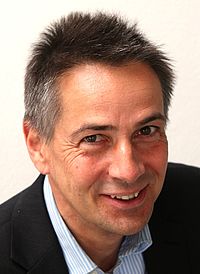 Prof. dr. Burkhard König (University of Regensburg, Germany) received his doctorate in 1991 from the University of Hamburg under the direction of Prof. de Meijere. He continued his scientific education as a postdoctoral fellow with Prof. M.A. Bennett, Research School of Chemistry, Australian National University, Canberra, and Prof. B. M. Trost, Stanford University. In 1996 he obtained his habilitation at the University of Braunschweig. Since 1999 he has been a full professor of organic chemistry at the University of Regensburg. He was dean of the His current research interests focus on the development of synthetic receptors for the recognition of biological target structures and the application of visible light chemical photocatalysis for organic synthesis. Burkhard König was Chairman of the Association of German Chemistry University Professors (ADUC, 2005-7), of the Liebig Association (2008-12), and was a member of the board of the German Chemical Society from 2004 to 2008. He is currently a board member of the Wiley-VCH/GDCh Publishing Advisory Board. Furthermore, König is an editorial board member of Chem. Eur. J., Eur. J. Org. Chem. (Chair) and Green Chem. Burkhard König was awarded e.g., the highly cited researcher award, Clarivate (2021), Chemistry Europe Fellow (2019) Reinhard-Koselleck grant of the DFG in 2017, the ERC Advanced Grant in 2016 and the UN-Decade Award on Sustainability in 2011/2012. He also received the Literature Award from the Fonds of the German Chemical Industry in 2007. He has authored 550 scientific publications and ~ 60 books, book reviews, and science related articles. His research was cited > 22 800 and the H-index is 75.
Prof. dr. Burkhard König (University of Regensburg, Germany) received his doctorate in 1991 from the University of Hamburg under the direction of Prof. de Meijere. He continued his scientific education as a postdoctoral fellow with Prof. M.A. Bennett, Research School of Chemistry, Australian National University, Canberra, and Prof. B. M. Trost, Stanford University. In 1996 he obtained his habilitation at the University of Braunschweig. Since 1999 he has been a full professor of organic chemistry at the University of Regensburg. He was dean of the His current research interests focus on the development of synthetic receptors for the recognition of biological target structures and the application of visible light chemical photocatalysis for organic synthesis. Burkhard König was Chairman of the Association of German Chemistry University Professors (ADUC, 2005-7), of the Liebig Association (2008-12), and was a member of the board of the German Chemical Society from 2004 to 2008. He is currently a board member of the Wiley-VCH/GDCh Publishing Advisory Board. Furthermore, König is an editorial board member of Chem. Eur. J., Eur. J. Org. Chem. (Chair) and Green Chem. Burkhard König was awarded e.g., the highly cited researcher award, Clarivate (2021), Chemistry Europe Fellow (2019) Reinhard-Koselleck grant of the DFG in 2017, the ERC Advanced Grant in 2016 and the UN-Decade Award on Sustainability in 2011/2012. He also received the Literature Award from the Fonds of the German Chemical Industry in 2007. He has authored 550 scientific publications and ~ 60 books, book reviews, and science related articles. His research was cited > 22 800 and the H-index is 75.
Selected papers:
- “Redox-neutral Photocatalytic C-H Carboxylation of Arenes and Styrenes with CO2” M. Schmalzbauer,T. D. Svejstrup, F. Fricke, P. Brandt, M. J. Johansson, G. Bergonzini, B. König, Chem 2020, 6, 2658-2672.
- “Deazaflavin reductive photocatalysis involves excited semiquinone radicals” A. Graml, T. Nevesely, R. J. Kutta, R. Cibulka, König, Nat Commun. 2020, 11, Artikel- Nr. 3174.
- “Umpolung Difunctionalization of Carbonyls via Visible-Light Photoredox Catalytic Radical-Carbanion Relay” S. Wang, B.-Y. Cheng, M. Sršen, B. König, J. Am. Chem. Soc. 2020, 142, 7524-7531.
- “Organic semiconductor photocatalyst can bifunctionalize arenes and heteroarenes” I. Ghosh, J. Khamrai, A. Savateev, N. Shlapakov, M. Antonietti, B. König, Science 2019, 365, 360-366.
- “Photocarboxylation of Benzylic C-H bonds” Q.-Y. Meng, T. E. Schirmer, A. L. Berger, K. Donabauer, B. König J. Am. Chem. Soc. 2019, 141, 11393-11397.
- “Ligand-Controlled Regioselective Hydrocarboxylation of Styrenes with CO2 by Combining Visible Light and Nickel Catalysis” Q.-Y. Meng, S. Wang, G. S. Huff, B. König, J. Am. Chem. Soc. 2018, 140, 3198-3201.
- “Chromoselective Photocatalysis: Controlled Bond Activation through Light-Color Regulation of Redox Potentials” I. Ghosh, B. König, Angew. Chem. Int. Ed. 2016, 55, 7676-7679.